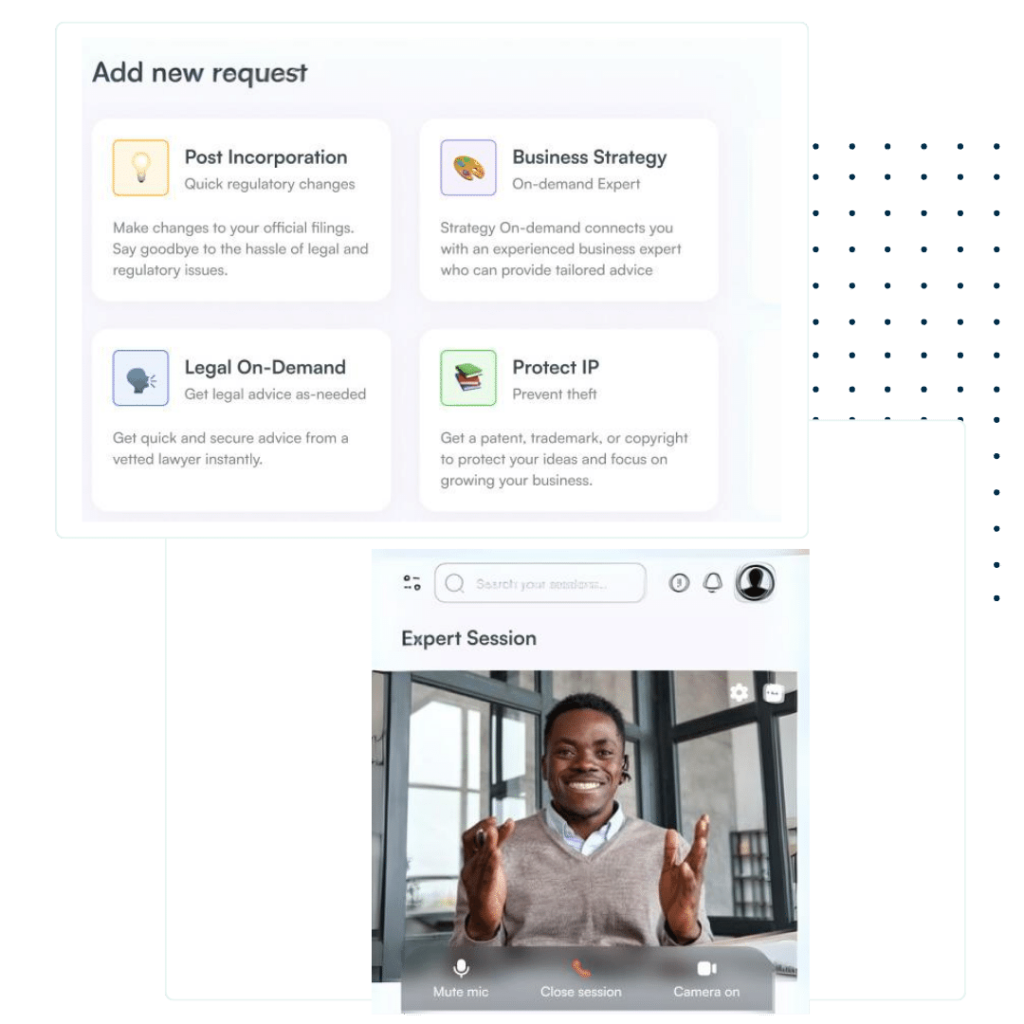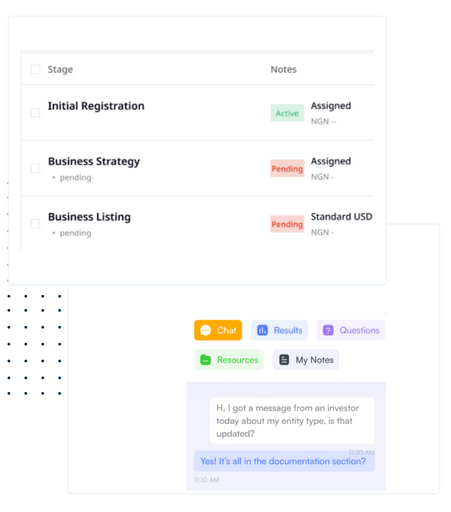It’s how you build your best Nigerian business
Say goodbye to the hassle of legal and regulatory issues. Get on-demand expert access, automated compliance management, and a secure document vault – all for a fair flat fee.

Kick Start Your Business Journey in Nigeria Without All the Stress
The only platform in Nigerian that helps you smoothly from beginning to end – and even after registering!
One Pack for Everything Your Need to Launch Your Business
Say goodbye to the headaches of understanding and dealing with legal and regulatory issues. We simplify the process and give you the tools to stay compliant. Focus on growing your business while we take care of the legalities.
Expert Guidance and Support
Gain on-demand access to legal and business professionals. Our experts are available on-demand to provide you with valuable advice, guidance, and support whenever you need it. Benefit from their knowledge and experience to make informed decisions and overcome any obstacles that come your way.
Comprehensive Resource Library
Access a wealth of resources for building a profitable Nigerian business at your fingertips. Our platform has legal and business templates, guides, and tutorials to help you run your business. Manage your business with confidence using our resources for contract drafting and regulation understanding.

One place to get it all done with those annoying back-and-forth
Instant access to a legal and growth experts to answer your questions on demand, as well as automated annual filings and customised legal and business templates. Plus, you’ll get access to investor resources to help take your business to the next level.
300+
Business Owners
500+
Entrepreneurs & Freelancers
Get Proven Tools and Expertise at Your Fingertips
Experience the confidence of having our expert team and comprehensive tools driving your success. Don’t waste time worrying about legalities and documentation – place your focus where it belongs, on growing your business in the thriving Nigerian market.
35+
instant Business
Resource
20+
Financing and
Investor Resource

Who We Are?
Counseal was born from our own painful experience navigating Nigeria’s challenging business landscape. “No one should have it this hard!” become our mission. We’re a team of legal, business and tech experts helping to smooth your journey toward entrepreneurial success in Nigeria.
Check testimonials for our satisfied clients
Neque egestas congue quisque egestas diam in. Semper quis lectus nulla at volutpat diam ut venenatis.
Temitope Omowale
“…The platform is user-friendly, affordable and forward-thinking.”
Thomas Omowale
“…it easy to register a business in Nigeria, especially for Nigerians in Diaspora.”
Osuagwu Tobiloba
“…makes it easy to manage your business in Nigeria and connect with lawyers on demand.”
Get the help and support you need
to build a profitable business
Our tech-first approach with expert business and legal team makes it easy for you to get started.

Kickstart the next step
towards the Nigerian business of your dreams
Pick the plan that supports your business ambitions. You get all the tools and services needed to manage your business, making navigating legal , regulatory and business hurdles easier.
Starter
₦4,520
per month, billed yearly
For the Entrepreneur-curious
Popular
Pro
₦7,525
per month, billed yearly
For Solo Entrepreneur & Freelancers
Premium
₦9,525
per month, billed yearly
For Your Micro & Small Business
Navigate Nigeria’s Business
with Ease
Say goodbye to business & regulatory stress in Nigeria! Get exclusive guidance, automated governance, connections to investors & secure document storage – all at a flat-rate fee!

